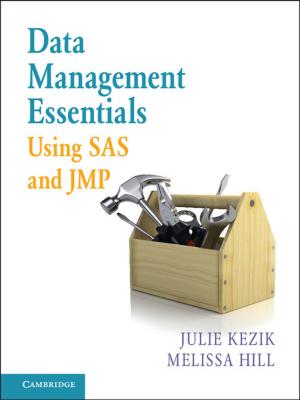The People's Government
An Introduction to Democracy
Nonfiction, Social & Cultural Studies, Political Science, Politics, History & Theory, Government| Author: | Del Dickson | ISBN: | 9781139985871 |
| Publisher: | Cambridge University Press | Publication: | July 21, 2014 |
| Imprint: | Cambridge University Press | Language: | English |
| Author: | Del Dickson |
| ISBN: | 9781139985871 |
| Publisher: | Cambridge University Press |
| Publication: | July 21, 2014 |
| Imprint: | Cambridge University Press |
| Language: | English |
The People's Government is premised on the idea that democracy is based on two fundamental rights: freedom and liberty. Liberty is the right to be left alone, while freedom is the right to participate in a political community. How people view democracy depends on which of these two rights they think is more important. Liberal democrats place a higher value on liberty, while free democrats see freedom as the primary right. From this starting point, the author adds five dimensions to define and distinguish democratic societies: rights, participation and representation, inclusion, equality, and power. Liberal democracies emphasize individualism, negative rights, representative government, inclusive citizenship, equal opportunity, and limited government. Free democracies stress community, positive rights, direct participation, exclusive citizenship, equal outcomes, and robust government. The book examines the most important arguments for and against democracy, and explores the life cycle of democracies - how countries democratize, mature, and fail. Finally, the author uses the five dimensions established earlier to evaluate and grade American democracy.
The People's Government is premised on the idea that democracy is based on two fundamental rights: freedom and liberty. Liberty is the right to be left alone, while freedom is the right to participate in a political community. How people view democracy depends on which of these two rights they think is more important. Liberal democrats place a higher value on liberty, while free democrats see freedom as the primary right. From this starting point, the author adds five dimensions to define and distinguish democratic societies: rights, participation and representation, inclusion, equality, and power. Liberal democracies emphasize individualism, negative rights, representative government, inclusive citizenship, equal opportunity, and limited government. Free democracies stress community, positive rights, direct participation, exclusive citizenship, equal outcomes, and robust government. The book examines the most important arguments for and against democracy, and explores the life cycle of democracies - how countries democratize, mature, and fail. Finally, the author uses the five dimensions established earlier to evaluate and grade American democracy.















